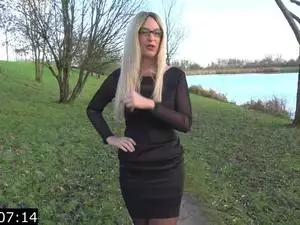Death And Damnation: Book 2 Of Poacher's ProgressChapter 7: Château Blanchard free porn video

Krish had advised me, before we buried the the young Chasseur of the Guard officer, that if I intended disinterring him at a later date then certain actions needed to be carried out to prevent a rapid decomposing of the corpse. The first was to wrap the body in a tightly tied blanket, or ground sheet, keeping the material close to the corpse. The depth of the burial should be at least six feet, which would save the corpse from being disturbed by ploughing, or being dug up by animals. The permanently damp soil of Flanders would keep the body cold, staving off deterioration of the flesh.
"In some parts of Scandinavia, bodies preserved in peat bogs have been found that are hundreds of years old. Chemicals in the soil act as an embalming agent, and the soil of Brabant and Flanders is rich in those chemicals." Krish had explained.
Once the corpse had been exhumed decomposition would increase rapidly, and the longer it remained above ground the quicker it would decompose.
Fortunately the distance from the Waterloo battle field to Wallers was about fifty miles, a two day journey by wagon. I was confident that an undertaker in Valenciennes would be able to preserve, and then present, a body that would not show too much deterioration, to his grieving mother – I assumed any mother would want to view her son's body before reburial took place.
I am no scholar; Latin I found difficult, Greek I found impossible, but I did seem to have a propensity for mathematics when at The King's School. When it came to trigonometry I was top of my class – a position I never achieved in any other subject. During my last year at school a team of surveyors and topographers, a part of the great enterprise of mapping the whole of England, came to survey and map the Grantham area. I would watch, entranced, as they went about the business of setting up theodolites and inclinometers; taking bearings, laying out measuring poles, and then use their computations to produce accurate maps. The surveyor in chief allowed me to look through the theodolite, and calculate bearings, distances and angles. Over time I became so proficient that on the Ordnance Survey map of South Kesteven is information that was calculated and formulated by me.
After burying the body of the Chasseur officer - who I now knew to be Pierre Blanchard - close to where he had fallen, I had taken compass bearings on three prominent positions, and was confident that I would be able to relocate the burial site, by calculating back bearings, and then use my skills in surveying.
With the name, and location, of Pierre Blanchard's family now established I decided to travel to the château near Wallers, and apprise his mother of the fact that I had buried her son at Waterloo. With her approval I would then return to the field of Waterloo, disinter his body and return him to the family home. I had Woodrow Allen accompany me to France, as Krish had been dispatched by Colonel Slade to Manchester, on some assignment for the Bureau.
After obtaining a theodolite, some marker poles, and balls of twine, to use in relocating the burial plot, we left London en route for Calais, via Dover, on the seventh of February. After an uneventful journey, except for me succumbing to my weakness of sea sickness, - or mal de mer as the French refer to it - when crossing The Channel, we arrived at Château Blanchard a week later.
At first sight the château reminded me of the Château d'Hougoumont at Mont St Jean. It was enclosed by a similar type of stone wall; high and thick, with loopholes made for muskets. A heavy wooden gate gave entry to a courtyard, where the house and outbuildings were fortified; thick walled and loop holed as the wall. I reminded myself that Flanders was known as the Cockpit of Europe, and the many battles over the centuries had caused the land to be fertilised by the blood and bone of countless combatants. Romans, Celts, Saxons, Normans, Germans, Franks, Spanish, Austrian, French, Russian, Dutch, English, and every other nationality of Europe, had left bodies to moulder and nourish the soil.
However, in this time of peace, the massive gates were wide open, and surely there would be no more conflicts in this area to continue to enrich the land with the bodies of young men?
We rode into a deserted courtyard, although smoke rising from a chimney indicated that the house was inhabited. Our horses' hooves rang out on the cobbled yard, outside what appeared to be a stable block, and I was just about to dismount when I saw the figure of a woman appear on the steps at the front door of the château.
I rode over and introduced myself, in my rather inadequate French. Although I understand the language well enough, my accent, and grammar soon exposes my limitations when speaking it.
The woman eyed with suspicion, as I stumbled through my introduction. She was slim, fair haired, and a few inches above five feet tall. I would imagine she was in her early forties, but still retained a certain girlish appearance, and attractiveness. When I had finished speaking she motioned that I should dismount. Closer to her I noted her fair hair had streaks of silver, and that there were faint lines of age, and worry, around her eyes, which were now more inquiring rather than suspicious, with irises of grey.
"Well, Major Greenaway, how can I be of assistance?" Her voice had a husky, throaty, timbre, which I have always found appealing in a woman, and it was not too far removed from Caroline Ashford's voice. Thankfully she spoke a much more adequate English than I spoke French.
"This is a somewhat delicate matter, Madam; could we go somewhere more private?"
She laughed disparagingly. "There is no one else here, except for your man over by the stables, surely that is privacy enough?"
The suspicion and wariness had returned to her eyes, and I cursed my stupidity in alarming her again.
I took a deep breath. "Madame Blanchard, at the field of Waterloo I came across a body, which I believe to be your son, Pierre."
As I mentioned his name she raised both hands to her mouth, cried out 'Mon Dieu! and staggered. I held her, my arm around her waist – a trim and yielding waist, I noted.
She steadied herself, and I withdrew my arm, which I have to admit was done rather reluctantly. This was the closest I had been to a woman since Caroline—other than Zinnia of course, and I regarded that as an aberration.
"We shall go somewhere more private." She flashed me a little smile, as if to apologise for not taking up my first invitation. I tied my horse to a post, and followed her into the house. We walked across a large entrance hall to a small room, situated under the stairway to the upper floor. It was probably her sewing room, as thread and fabric lay strewn about on a table and some chairs.
"Forgive the disarray of the room; I was in the middle of repairing my best dress when I heard you ride in." She indicated for me to sit, then sat down opposite me, her eyes fixed firmly on my face. "You have seen the body of my son? How did he die? Did you kill him?"
That last question was phrased more in resignation than anger. I related the circumstances of me finding her son's body.
"No mark on him," she marvelled. "How could that be?"
I gave her Krish Armityge's explanation, and stressed that it would have been quick and painless, although I did not really know if that would have been the case. I told her I had removed his sword, pistol and snuff box before the burial, and then I brought out the miniature and handed it to her.
She stared at it, as if seeing it for the first time. "That is my mother! This miniature belongs to my sister; how did Pierre have it?"
I turned it over, to show her the inscription.
She read it aloud. "To Pierre, on his appointment to the Guard, April 1815". Her voice cracked with anger. "I might have known. It was she who encouraged him to join the army –the bitch!"
I could hear the bitterness, and yes, the hatred, in her voice. She glared at me, as if daring me to show disapproval of her words. "You must think me a terrible person, to call my sister that name. I begged Pierre not to go to Paris, when the news of Napoleon's return became known. He left nevertheless, taking Berthier's sword and pistol with him, determined to enlist..."
I had to interrupt her when I heard her mention 'Berthier'; even I knew of that name. "Is that Marshal Berthier, Napoleon's former Chief of Staff?"
"Yes." Her reply was abrupt, and the tone of her voice eschewed further questions.
Madame Blanchard resumed talking, her voice still bitter. "Pierre must have been in communication with Eloise for some considerable time, as I found mnany letters from her in his room. She had used all her considerable charm to influence him; convincing him that it was his duty to fight for his Emperor, as his father and brother had done."
She stared sightlessly at the miniature. "Yes, they both fought, and they both died, for the Tyrant. May he rot in everlasting hell!"
She looked me right in the eye. "I do not apologise for my language, but I do apologise for my intemperance, and my lack of hospitality. Please, stable your horse, and then you and your man shall be my guests. We will have dinner, and you can tell me more of the circumstances of your discovery of my son's body, and I will tell you why I am so angry with my former Emperor."
She gave me a smile that made her look considerably younger, and I left to see to the horses.
Dinner was a pleasant affair. There was good food and plenty of it, and we were waited on by two very pretty French girls, who gave Woody appreciative glances. He, as was usual, had made himself immediately at home. He already knew both the girls' names, had found himself a comfortable billet in the stable, and I wager he would have one, or both, girls keeping him warm at night.
The table was cleared. Woody and the girls left, and I was alone in the dining room with Madame Blanchard. I was slightly disconcerted by the steady gaze she had fixed me with, and I tried making small talk.
"That was an excellent meal, Madame. I was surprised by the quality, quantity, and diversity, of the food your kitchen produced, given the depredation I know this area was subjected to less than two years ago."
She gave a tired smile. "We are no strangers to invading armies, Major. Centuries of conquest and re-conquest have given the local population great skill in hiding food, cattle, and women, from invaders – and from our 'liberators'. Château Blanchard has been 'host' to English, Russian, and Prussian guests since I have been mistress here."
I looked surprised at the mention of 'English'.
"Yes, your Duke of York had his headquarters at the château, during the siege of Valenciennes. It was at that time I learned my English."
I complimented her on her usage and grasp of the language, and asked what she had thought of the Duke, who was now the C in C of the British army.
"He was pleasant enough, given that his men stole whatever was not nailed down; drank anything even vaguely alcoholic, and molested all and any female between the ages of ten and eighty. Fortunately, I was under his protection, and, even more fortunately, he was mightily taken by one of my house maids, else it would have been me warming his bed at night." There was a slight pause, and then she added. "I am not attracted to corpulent men."
We both burst out laughing, and I realised then that Madame Blanchard had a spirit that would not be amiss in a girl of eighteen. We finished laughing, and once again she gave me that cool, searching gaze.
"Tell me Major, why are you really here? It is not to return the miniature; it does not belong to me. The sword, pistol and snuff box were gifts to my son, and I suppose they should have been buried with him."
I felt the implied rebuke. "The items were removed to help track down the family of the boy. I can retrieve them, and return them, if you demand it." Although I knew I would never be able to prise the damascened sword away from The Keeper of The Royal Ordnance.
She shook her head wearily. "No, they were given to him by his godfather, General, or rather Marshal, Berthier, a man who left his companions to die in Egypt, and did the same in Russia, following the orders of his idol, Napoleon Bonaparte." Her bosom, surreptitiously observed by me, rose and fell as she sighed.
"Poor Louis-Alexandre; he knew he had betrayed his men, but followed the Little Corporal like a dog. My husband, Raoul, and he were friends from before the revolution, and then served together in the Army of Italy. Raoul then commanded a division in Egypt. When Napoleon was preparing to return to France Berthier invited Raoul to join the group who were to accompany him.
Raoul declined the invitation; his duty to his men outweighed any duty he owed to Napoleon. He died in the sands of Egypt, alongside his men."
Her face saddened, and I had an overwhelming urge to take her in my arms and comfort her, which, fortunately I managed to resist. She had given me a sharp glance, when the thought to embrace her first came to me, and I wondered if she could she read my mind.
However, she continued with her story. "When Napoleon crowned himself Emperor Berthier was made a Marshal. He came to ask for my hand in marriage – he had always loved me, or so he said. I told him I could not marry a man I did not love, and that I could not love a man I did not respect, and that I did not respect him for his action in abandoning my husband and his men. The poor man was crestfallen, but he quickly found himself a duchess to wed, who may have loved and respected him. He handed me his sword, begging me to give it to my eldest son, Raoul. I threw it into a corner, and later one of my maids put it up in an attic, and there it stayed until Pierre found it, before he went off to Paris. He also took the pistol Berthier had sent me, after another army had been abandoned, this time in Russia, along with my son Raoul, who died, who knows where and how, in those snowy wastes."
She sniffed, and wiped her eyes with a lace handkerchief. "At least I know the manner and place of Pierre's death, and I thank you for bringing me that information. I can rest assured that he was given a proper burial. So many poor boys are left unburied, and animals and the elements consume them."
"Madame Blanchard, not only did I bury your son, but I took bearings and measurements that will allow me to rediscover the place. I could exhume the body, and bring him home for burial in your family plot."
She looked at me with a mixture of shock, grief, excitement and disbelief. "Only a few years ago our two countries were at war. Why should you do such a thing? My family means nothing to you. What do you really want?"
Her voice had risen as she spoke, and the last question was in a shrill, almost frantic, tone of voice. Madame Blanchard was near a breakdown of her so far imperturbable composure.
"I have been a soldier for over ten years, and I have killed many Frenchmen. I suppose it is a measure of restitution, to all those mothers to whom I have brought such a grief as I see you bear."
Her face relaxed, and she gave me calm, almost Madonna-like smile. "You are a good man, Major Greenaway. If you are able carry out such a wonderful thing I would be forever in your debt. What do you need to accomplish your quest?"
I explained that I had the necessary measuring devices, and would need only a coffin, and a waggon and horses to transport the body.
"A coffin can be obtained easily enough from the village carpenter; we have horses and waggons, but what we do not possess are horse shoes, and I am at my wits end as to how we are to plough the fields ready for the spring sowing. There is no blacksmith, other than in Valenciennes, and he has enough work for four men, and charges four times the usual rate. I will have to sell some more of the family silver to raise the money, and then it will be a week or more before the shoes will be ready. Can you stay until then?"
Her anxious voice and worried look pierced my heart like a dagger. I was ready to move heaven and earth to help this indomitable woman; the fact that she had a shapely body, soft warm, inviting looking, lips, and exuded an air of sleeping sensuality, may have had some influence on my decision.
"I have furlough for a month; but tell me, do you have a blacksmith's shop in the stable block?" She nodded, wondering why I asked the question. "My man, Woodrow Allen, is a farrier; if there is metal available he will make a set of shoes and fit them."
She clapped her hands in glee. "Major Greenaway, you are sent to me by God Himself!"
She came and kissed me sweetly on my cheek; her lips, soft and warm as I had suspected, were uncomfortably close to mine, and I managed to restrain myself from planting them on hers in return only with the greatest difficulty.
After dinner I was shown up to a bare looking room with hardly any furnishings, other than a chair, a small table and a bed, which soon swallowed me in sleep. At breakfast the next morning Madame Blanchard apologised for the sparseness of my room.
- 06.11.2021
- 49
- 0




























































